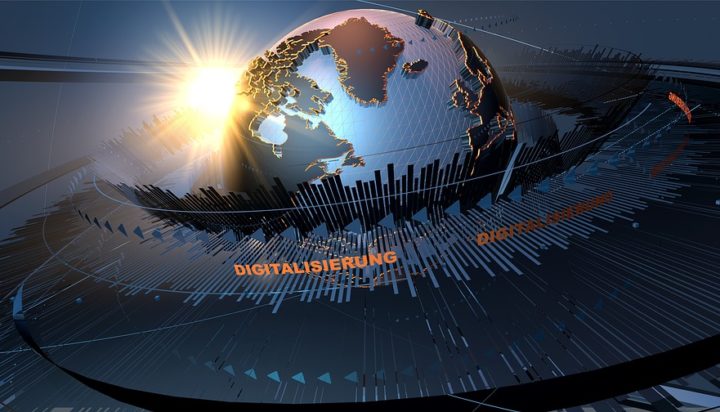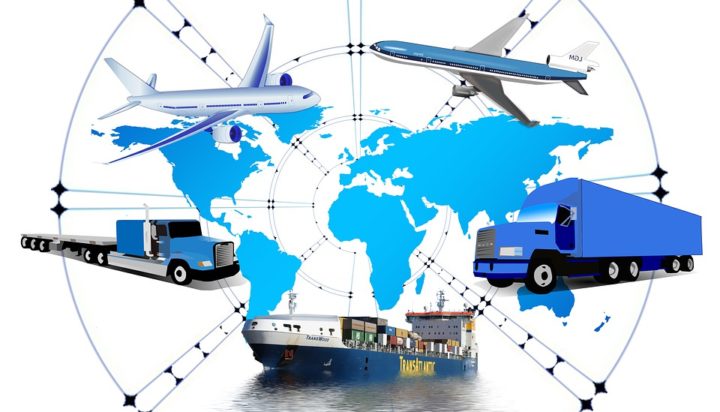The digital world has changed the way people interact with each other or between businesses and consumers. It also impacts the way companies interact with their business partners. In today’s fast-paced economic environment, the success of a business is partly related to its ability to organize a logistics network that can offer an ever more optimal service and respond in real time to the needs of its customers.
In this context, the digital ecosystem, if it is mastered, is a key factor of undeniable success: articulated around a computer system, better connected and capable of optimizing data processing, the supply chain becomes a tool of performance and of success.
A very progressive digitalization of actors in the supply chain
 In our business, the digital transformation has however not yet meet the height of the expectations. A 2016 Deloitte Report on the digital transformation of SMEs in France finds that French companies are adopting digital solutions less quickly than their European counterparts, and the smaller they are, the less digitized they are. With regard to the transport and to the logistics trades, the slowdown can come from the lack of valorization of new solutions, the lack of access to information, from lack of skills or from the investment capacity.
In our business, the digital transformation has however not yet meet the height of the expectations. A 2016 Deloitte Report on the digital transformation of SMEs in France finds that French companies are adopting digital solutions less quickly than their European counterparts, and the smaller they are, the less digitized they are. With regard to the transport and to the logistics trades, the slowdown can come from the lack of valorization of new solutions, the lack of access to information, from lack of skills or from the investment capacity.
The results of the survey revealed in 2016 by Capgemini and GT Nexus on the “Digital transformation of the supply chain: state of the art and prospects” shows that there is a significant gap between the expected digital maturity of the Supply Chain and the expectations to 5-year horizon.
Thus, while 70% of business executives surveyed have started a digital transformation of their supply chain, only 5% of them declare themselves very satisfied with the results achieved to date. While half of respondents to this survey see it as a priority, 1/3 feel that the progress is not yet sufficient.
The strong expectations in terms of digital maturity
The study also shows that platforms, big data analytics, simulation software and the cloud are the torch of this revolution. However it is difficult to get rid of its old habits: in fact, traditional tools such as emailing, phoning are still mostly used. In terms of expectations, leaders expect more integration, real-time information, and an automation of processes within 5 years. Half of the companies surveyed hope to have access to supply chain data by 2020, while only 16% are satisfied with current access to information.
The medium-term vision: the relations between strengthened partners
Cap Gemini and GT Nexus reveal to us their rather optimistic vision of future developments: within 5 years, a reinforcement of the information sharing between companies and their suppliers, a reinforced collaboration, more involved carriers in the planning process. Today, the fierce competition between companies hinders such a voluntary approach in sharing the information. But given the magnitude of developments in our economic environment, we have no choice but to find alternative ways.
What are the recommendations for optimally initiating its digital transformation?
 In conclusion, I will share with you the recommendations of this study which, rightly so, should hold the attention of any business owner wishing to evolve his business model:
In conclusion, I will share with you the recommendations of this study which, rightly so, should hold the attention of any business owner wishing to evolve his business model:
– Focus on value-added: in this sense, it is necessary to think in terms of return on investment and to project in the long term. “Today’s investor is not benefiting from yesterday’s growth,” Warren Buffet said.
– Fail quickly but succeed even faster: we must accept that any idea is good to take but that many of them will fail.
– Adapt your governance model: it is clear that some work methods are no longer relevant and that the company 3.0 must know shake his executives.
– Talent management: the ability to identify existing skills and those needed for the progress is a key to a successful digital transformation.
– Develop an ecosystem of partnerships to address issues related to the fragmentation of the logistics sector.
– Do not forget about risk management and, among other things, risks related to cybersecurity.
Cap Gemini and GT Nexus point out that a more holistic view of the ecosystem will be essential for any company that wants to succeed. Indeed, it is clear that companies that will not be able to adapt to new economic business models will risk seeing their market share melt like snow in the sun.

